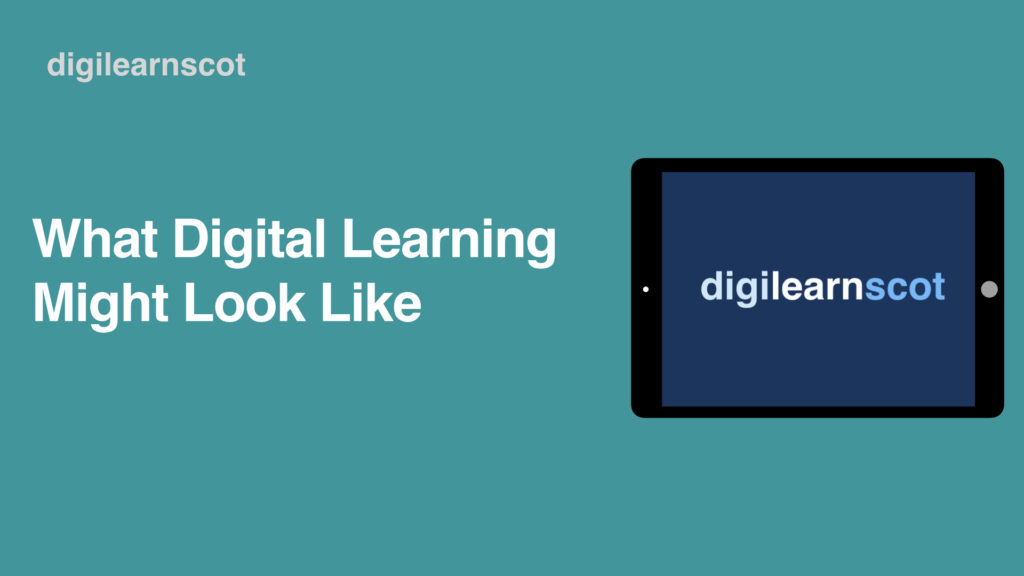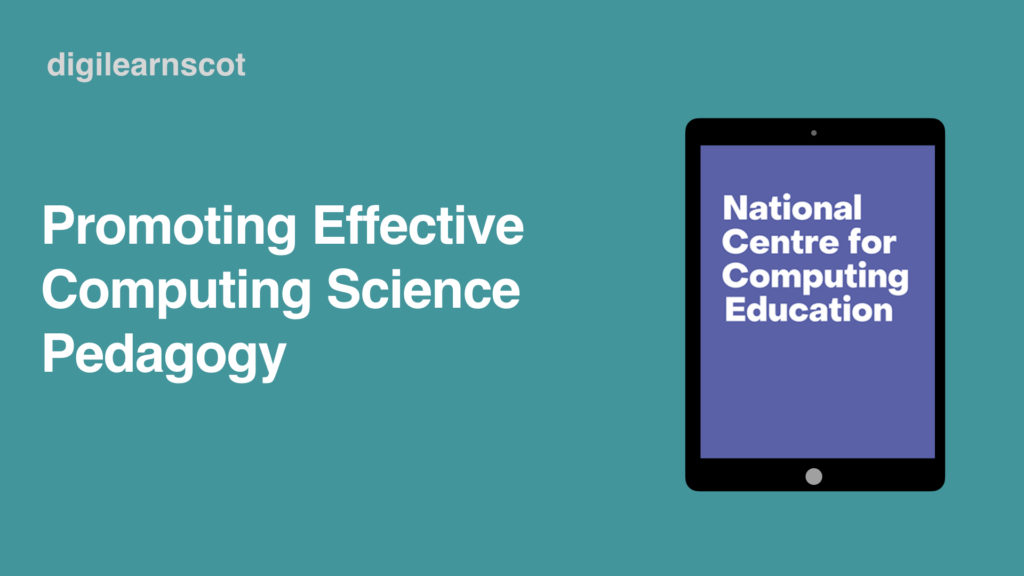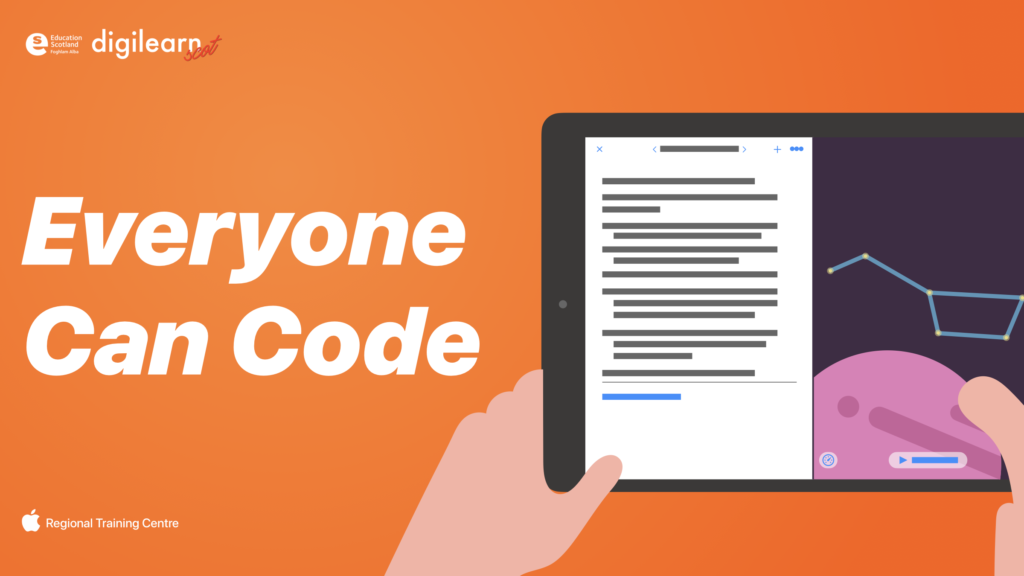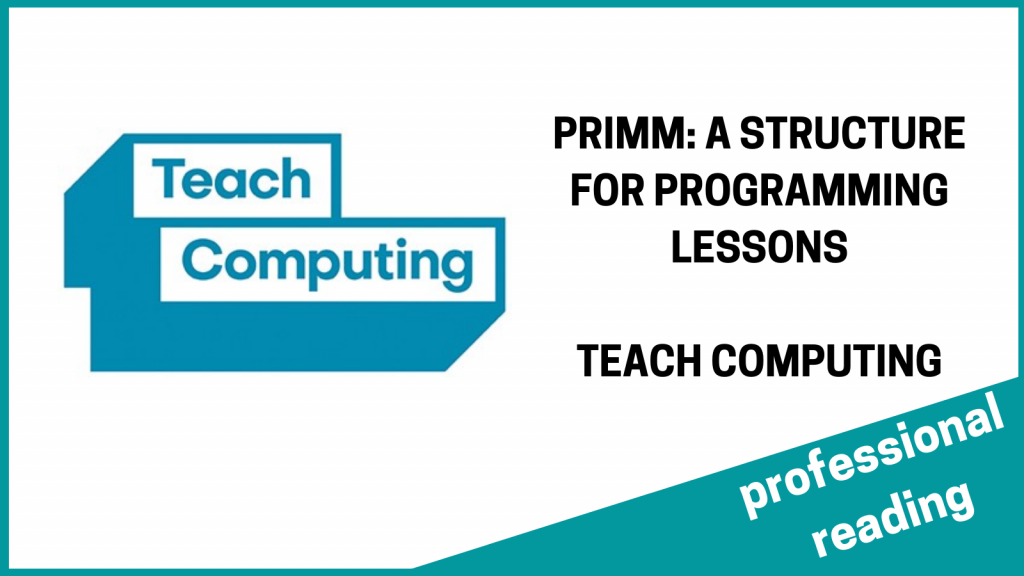
The aim of the document is to provide examples of learning activities and how they can be incorporated into a range of contexts at early, first and second level. The document lists the experiences and outcomes in the left-hand column with suggested learning activities in the right-hand column. These examples… Read more

The National Centre for Computing Education (NCCE) have created 12 pedagogy principles for teaching computing science. You can download a handy classroom poster featuring all 12 pedagogical principles, to act as a quick reminder for busy teachers. The National Centre for Computing Education promotes effective pedagogy in a number of ways Research Bytes newsletter Pedagogy Quick… Read more

When you teach code, you’re also teaching logic, creativity, and problem solving—skills all students need for the future. The Everyone Can Code curriculum from Apple introduces students to the world of coding through interactive puzzles, playful characters, and activities for both in and out of the classroom. And from the… Read more

PRIMM is an approach that can help teachers structure lessons in programming. PRIMM stands for Predict, Run, Investigate, Modify and Make, representing different stages of a lesson, or series of lessons. PRIMM promotes discussion between learners about how programs work, and the use of starter programs to encourage the reading… Read more

Skills Development Scotland have been working with people in the cyber security sector, who have unique real-world experience to share with our young people, to show them what it’s really like to work in tech. This is a great opportunity to inspire the “digital humans” of the future. Taking authentic… Read more

It is vital that our children and young people understand how computers work and the many roles that they perform in almost every aspect of our lives. Whether it means that they are aware that the car, TV or toaster is a computer that may require software updates or security measures… Read more

Computational thinking is a process of understanding and solving problems presented to us. It is a systematic process that encourages breaking a problem into smaller parts, identifying the key elements and discarding the superfluous, and then building a solution in a logical, ordered way. This makes it very similar to… Read more

Every computer we use has been built to make a process quicker, easier, cheaper or safer. This organiser is all about recognising computer systems as solutions to design problems. Learners should experience a range of techniques and approaches to understanding the problems, planning solutions and then building a working computer solution. This… Read more

There are clear similarities with the order and progression computing science play based provocations are provided for learners of any level. A concrete – pictorial – abstract concept, similar to how we introduce mathematical concepts e.g. counting concrete objects such as pebbles, progressing onto subitising with visuals or with a dice then finally counting… Read more

This webinar was delivered to raise and support practitioner awareness of the National advice, guidance and where to access a wealth of free learning and teaching resources to embed computing science at early level. This session welcomed practitioners working with learners are in ELC or Primary School AND all other… Read more

Computing Science is fun, exciting and engaging for learners of all ages and it can be introduced to early level learners through play across the curriculum. There are 3 organisers in the Computing Science curriculum, running throughout BGE. Computational Thinking is the golden thread that runs throughout our curriculum and our lives. It is intertwined in almost everything we do in life and encourages… Read more

Activities, support and resources to help you work towards achieving the Digital Scotland challenge badge. This project is developed and funded by Scottish Government through the Digital Scotland Business Excellence Partnership whose partners include Scottish Government, Skills Development Scotland, Education Scotland, Scotland IS, Scottish Funding Council, Scottish Qualifications Authority, Highlands… Read more

This guide introduces and explains the Computing Science (CS) Organisers and the updated experiences and outcomes and Benchmarks. It provides an exemplification guide and resources for use in Early and Primary years. visit TeachCS.scot Read more

KS1 Computing – BBC Bitesize This site gives a great overview of Computing Science, and although it is designed for the English curriculum, it offers quality information appropriate for First Level learners. The site contains information and videos to support learners. Visit Bitesize Read more

What is the world wide web? – BBC Bitesize BBC Bitesize has lots of great pages that explain Computing Science concepts and this one explores what the web is and how we use it. Although it is classed as KS2 in line with the English curriculum, the information is excellent… Read more

CS First CS First is a free computer science curriculum from Google that makes coding easy to teach and fun to learn. Their site has information and professional learnign for educators to make sure they have the confidence and knowledge to introduce Computing Science to their learners, as well as… Read more


